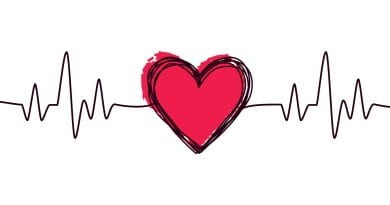Opinion June 2020
During Pandemic, We Need to Address Mental Health
By António Guterres
The COVID-19 virus is not only attacking our physical health; it is also increasing psychological suffering. Mental health is at the core of our humanity. It enables us to lead rich and fulfilling lives and to participate fully in our communities.
Even without the pandemic, one in four of us will suffer a mental-health episode during our lifetimes. The shocks associated with COVID-19 are now pushing many toward greater fragility and pain: grief at the loss of loved ones, anxiety at the loss of jobs, isolation and restrictions on movement, difficult family dynamics, uncertainty and fear for the future. Each of these on its own can trigger or deepen distress. Today, many people are suffering several simultaneously.
As we recover from the pandemic, we must take the opportunity to build mental-health services for the future, by shifting services to the community, making them accessible online, and making sure mental health is included in universal health coverage.
In many countries, COVID-19 is leading to cuts in mental-health services and the closure of facilities. Unless we act now to address the mental-health needs associated with the pandemic, there will be enormous long-term consequences for families, communities, and societies.
This very concerning picture is the backdrop to the policy brief on COVID-19 and mental health that the United Nations launched last month. It includes recommendations to governments and others that can help mitigate the mental-health dimensions of the pandemic.
Mental-health services are an essential part of all government responses to COVID-19. They must be expanded and fully funded. Policies must support and care for those affected by mental-health conditions and protect their human rights and dignity. Lockdowns and quarantines must not discriminate against those with poor mental health.
As we recover from the pandemic, we must take the opportunity to build mental-health services for the future, by shifting services to the community, making them accessible online, and making sure mental health is included in universal health coverage. It will be essential to involve people with lived experience of mental-health conditions in designing and delivering services.
There is no health without mental health. The United Nations is strongly committed to creating a world in which everyone, everywhere, has someone to turn to for psychological support.
I urge governments, civil society, health authorities, and others to come together urgently to address the severe mental-health consequences of this pandemic.
António Guterres is secretary-general of the United Nations.
Allaying Concerns About COVID-19 and Giving Birth
By Dr. Heather Sankey
The current coronavirus pandemic has brought fear and uncertainty into the lives of many Americans.
As pregnant women prepare to give birth across the country and at Baystate Health, many are concerned they will be giving birth alone with no loved one by their side, while others are equally concerned about being separated from their newborns if they test positive upon admission to the hospital. While any patient being admitted to a Baystate hospital is being tested for COVID-19, we are seeing some mothers-to-be when they come in to deliver their babies declining to be tested.
Baystate is testing all patients admitted to the hospital to get a more accurate count of those patients who are asymptomatic or pre-symptomatic carriers of the virus in the community. The information will help caregivers to determine the safest approach for their care during their hospital stay and when they leave the hospital.
We are following guidelines established by the Centers for Disease Control and Prevention regarding the best way to care for the baby when mom tests positive. The determination of whether or not to separate a mother with known or suspected COVID-19 and her infant is a shared decision between the mother and the clinical team. We have found that a small number of women without symptoms test positive. The results allows us to take steps to minimize the spread of the virus to others, including the baby.
According to the CDC, considerations in the shared decision making include the clinical condition of the mother and the infant, testing results of the mother (confirmed versus suspected) and infant (a positive infant test would negate the need to separate), desire to breastfeed, and the ability to maintain separation upon discharge.
Testing also allows for early diagnosis to prevent spread to the newborn, and to family and friends upon returning home. Knowing a mom has tested positive also gives us the opportunity to teach her how to care for baby with minimum risk at home.
Consider the following guidance when returning home to reduce the risk of transmission of COVID-19 to your baby:
• Have someone in the home without COVID-19 or symptoms care for your baby.
• Mothers should minimize contact with the baby as much as possible.
• When not providing care, keep the baby at a distance of six feet or in a separate room.
• All caregivers should wash their hands before any contact with the baby.
• All caregivers should wear a face mask during contact with the baby.
Another common question from mothers who have COVID-19 is, “is my baby at risk for getting COVID-19?” It is generally believed that transmission does not occur in utero. However, transmission after birth can occur due to contact with infectious respiratory secretions from a cough or sneeze and is a concern because it has been associated with severe complications in some newborns.
Mothers who test positive are also concerned about breastfeeding. Breast milk provides protection against many illnesses and is the best source of nutrition for most infants. In limited studies, COVID-19 has not been detected in breast milk; however, it is not known for sure whether mothers with COVID-19 can spread the virus via breast milk, or whether there are protective antibodies in the milk. Even if the virus cannot be transmitted via breast milk, it may still be transmitted to the baby during close exposure, like breastfeeding, due to mothers coughing or sneezing.
Mothers with known or suspected COVID-19 who choose to breastfeed must put on a face mask and practice hand hygiene before each feeding. If, for some reason, there is a temporary separation, we encourage moms to express their breast milk, which will be fed to her baby by one of her caregivers.
As for mothers worried about giving birth alone, one partner is allowed to attend the birth and can remain with the new mom until discharge, unless she or her support person develop respiratory symptoms or a fever. The partner will be screened twice a day for signs of infection.
In the end, we want what is best for baby and mom. Our goal is to keep the baby safe in the hospital and at home upon discharge, even if mom tests positive for COVID-19.
Dr. Heather Sankey chairs the Department of Obstetrics and Gynecology at Baystate Medical Center.


